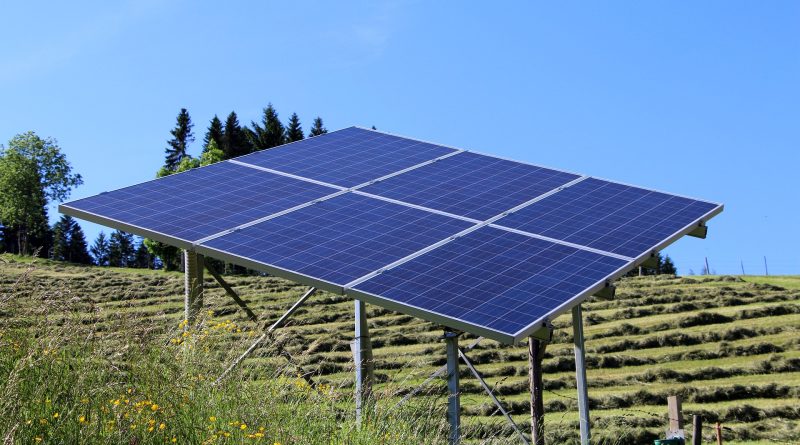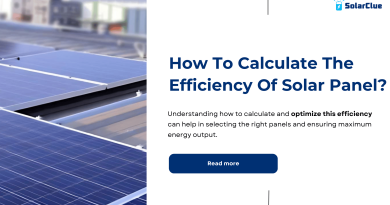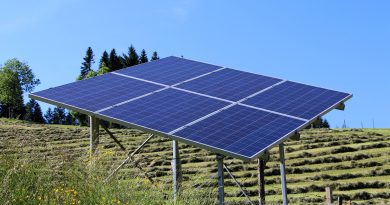Off-Grid Solar Systems: Necessity of Batteries Explained
Off-grid solar systems have gained popularity in recent years as a sustainable and environmentally friendly alternative to grid-tied systems. With the ability to generate electricity from the sun, these systems are attractive options for individuals seeking energy independence and lower utility bills. While most people associate off-grid solar systems with battery storage, it is important to understand that not all off-grid solar systems require batteries. In this blog post, we will explore the different types of off-grid solar systems and discuss whether batteries are necessary or optional in each case.
Table of Contents
Types of Off-grid Solar Systems
1. Battery-based off-grid solar systems:
These are the most common types of off-grid solar systems and include batteries as an essential component. The solar panels collect energy from the sun and convert it into electricity, which is then stored in the batteries for use during times when the sun is not shining. Battery-based systems ensure a continuous power supply even after sunset or during cloudy days.
2. Hybrid off-grid solar systems:
Hybrid systems combine the benefits of both off-grid and grid-tied solar systems, allowing users to take advantage of solar energy while still remaining connected to the utility grid as a backup power source. These systems incorporate batteries to store excess energy, ensuring a constant power supply during outages or periods of low sunlight. However, the primary source of electricity in hybrid systems is the solar panels, making batteries optional rather than necessary.
3. Battery-less off-grid solar systems:
As the name suggests, battery-less off-grid solar systems do not require any battery storage. Instead, they use solar panels to generate electricity which is used instantly or stored in capacitors or other energy storage devices. These systems are commonly used in applications where a consistent power supply is not crucial, such as water pumping, solar street lighting, or remote monitoring systems.
Factors Influencing the Need for Batteries
1. Energy requirements:
The amount of energy needed to power a property is a crucial factor in determining the need for batteries in off-grid solar systems. If the energy demand is high, such as in a residential or commercial building, battery storage becomes essential to ensure uninterrupted power supply during periods of low solar radiation.
2. Usage patterns:
The way energy is consumed throughout the day also plays a role in the need for batteries. If most of the energy consumption occurs during daylight hours, when solar panels are producing electricity, batteries may not be necessary. However, if energy demand is spread evenly or predominantly during evening hours, batteries become crucial to store excess energy produced during the day for use at night.
3. Geographical location:
The geographical location of a property impacts the availability of sunlight and the length of the dark periods. Areas with long nights or frequent cloudy weather may require battery storage to ensure a consistent power supply. Conversely, locations with abundant sunlight and shorter nights may not rely on batteries as heavily.
Benefits of Off-grid Solar Systems with Batteries
1. Energy independence:
Battery-based off-grid solar systems provide complete energy independence. Users are no longer reliant on electrical grids or utility companies, allowing them to cut ties with rising electricity rates and potential power outages.
2. Flexibility in energy usage:
With battery storage, off-grid users have the flexibility to consume electricity when it suits them best. They can store excess energy produced during off-peak hours and use it during peak demand times to reduce reliance on the grid.
3. Emergency power supply:
During power outages, off-grid solar systems with batteries act as reliable backup power sources. This can be especially critical for individuals residing in remote areas or regions prone to natural disasters.
Conclusion
While all off-grid solar systems have the common goal of generating electricity independently of the grid, they differ in terms of their need for batteries. Battery-based systems ensure a continuous power supply even during nighttime or cloudy weather, providing energy independence and flexibility. Hybrid systems offer the option to remain connected to the grid while still benefiting from solar energy. Battery-less systems, on the other hand, are more suitable for applications with intermittent power requirements. Understanding the energy demands, usage patterns, and location-specific factors are crucial in determining whether an off-grid solar system should include battery storage. Ultimately, the decision should be based on individual needs and preferences for a reliable and sustainable off-grid energy solution.
Ready to power your off-grid lifestyle? Learn about the necessity of batteries in off-grid solar systems with SolarClue®. Visit our website for cutting-edge solutions that ensure continuous and reliable energy, even in the most remote locations.
Frequently Asked Questions
Batteries are crucial for storing excess energy and ensuring a continuous power supply in off-grid solar systems.
Batteries store excess energy generated during sunny periods for use during cloudy days or nights.
While possible, batteries significantly improve the reliability and autonomy of off-grid solar systems.
Various battery types, including deep-cycle lead-acid and lithium-ion, are suitable for off-grid solar applications.
Lifespan varies but is typically 5-15 years, depending on the type of battery and usage patterns.
SolarClue® offers advanced battery technologies and expert guidance to maximize off-grid solar system efficiency.
In many regions, there are incentives, tax credits, and rebates to encourage the adoption of off-grid solar systems.
Yes, off-grid solar systems can be expanded by adding more batteries to meet increasing energy needs.
Regular checks and proper maintenance, such as avoiding deep discharges, ensure the longevity of batteries in off-grid solar systems.
SolarClue® experts can help assess your energy needs and recommend the ideal battery capacity for your off-grid solar setup.




